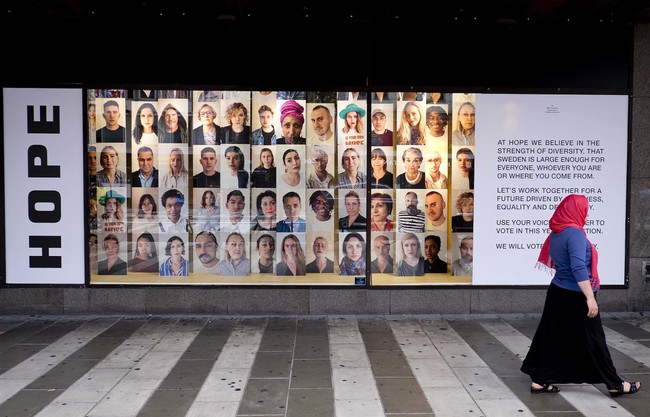
Last month the NY Times looked at corporate filings and tried to gauge how they had handled DEI issues over time. What they found was that mentions of DEI really accelerated in 2020 and peaked in 2022 but were now on the way down.
By 2022, over 90 percent of the S&P 500 had language about D.E.I. in their annual filings. Uber, for example, “committed to becoming an anti-racist company.” Best Buy wrote in a quarterly regulatory filing that “in the wake of George Floyd’s death” the company would strive to “address racial inequities.”…
Seventy-eight percent of companies — 297 out of the 381 that have filed their reports so far this year — continue to discuss various diversity and related initiatives, according to the Times analysis, which examined a decade of financial filings known as 10-Ks that public companies submit each year to the Securities and Exchange Commission.
But many of them have softened or shifted previous language, by removing the word “equity,” for example, or emphasizing “belonging” rather than D.E.I.
The Washington Post must have thought this was a good approach to try to measure the corporate adoption of DEI because today they published a very similar report. They found the same basic pattern. Mentions of DEI are still present but at much lower levels than at any time since 2020.
Last year, members of the S&P 500 recorded the fewest DEI references in their 10-K filings since 2020 — when companies were under pressure from investors and the public to use their considerable resources to effect social change — according to an analysis by The Washington Post. The index represents approximately 500 large companies across 11 industries and is considered the benchmark gauge of the U.S. stock market.
The typical S&P 500 company mentioned DEI four times in 2024, The Post’s analysis found. That’s well off the nine mentions, on average, recorded in 2020, and the peak of 12.5 in 2022.
If you’re wondering about how often DEI was mentioned in corporate filings prior to 2020, the answer is rarely if at all. All of this was an attempt to jump on the Black Lives Matter bandwagon in 2020.
Before 2019, major corporations rarely, if ever, referenced DEI in regulatory filings, The Post’s analysis found. From 2015 to 2019, the term garnered less than one mention per company, on average, though some did use “diversity.”…
The topic has been on corporate radars since demographic shifts in the 1990s and 2000s prompted companies to seek out overlooked talent and start considering how identity affects people in the workplace, said Janet Stovall, a longtime inclusion consultant who works with large companies…
The introduction of “equity” considerations and the subsequent rise of the acronym “DEI” unfolded at a rapid clip after the 2020 murder of George Floyd sparked a national conversation about race, Stovall said, as corporations forged ahead with major monetary commitments and policies despite having relatively hazy ideas about what achievement would look like within their ranks.
The fever for DEI finally broke when the Supreme Court put an end to Affirmative Action in college admissions in 2023. That didn’t directly impact corporate DEI practices, but many companies felt the writing was on the wall that discriminating against one race to benefit another was potentially grounds for a lawsuit (as it should have been all along).
Still, what we’re seeing so far is a lot of corporate rebranding. DEI is out and has been replaced with “belonging.” That’s basically a synonym for inclusion which is the element of DEI most critics find the least objectionable. The D and E in DEI are different because diversity and especially equity are more likely to be tied to promotion and hiring practices that are objectionable or simply illegal.
Tension has been most intense around initiatives tied to the “D” and “E,” such as workforce representation goals, and fellowships and mentorships tied to gender or race, said Paolo Gaudiano, an adjunct professor at New York University’s business school and founder of Aleria, a data-driven inclusion consultancy. The equity piece has become particularly contentious among those who contend that DEI programs’ focus on equity results in unfair preference to those of certain backgrounds, he noted.
There are some excerpts from corporate filings that show how the language was adjusted between 2023 and 2024. Here’s one for Johnson and Johnson:
Underpinning these focus areas are ongoing efforts to cultivate and foster a culture built on
diversity, equity and inclusion (DEI),innovation, health, well-being and safety, inclusion and belonging where the Company’s employees are encouraged to succeed both professionally and personally while helping the Company achieve its business goals.
There are several more like that. It’s a clear sign that corporations are getting the message that some of this language suggests practices they probably don’t want to have to explain in court.








